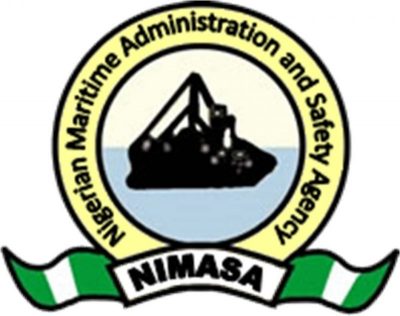A Federal High Court in Lagos on Tuesday began trial-within-trial to test whether the statements obtained from a former acting Director General of NIMASA, Haruna Jauro, facing N304.1 million fraud charges were voluntary.
Jauro, who assumed leadership of the Nigerian Maritime Administration and Safety Agency (NIMASA), is charged is being prosecuted by the Economic and Financial Crimes Commission (EFCC).
He is standing trial alongside Dauda Bawa and Thlumbau Enterprises Ltd on 19 counts bordering on fraud.
The accused, who were arraigned on April 12, 2016, had pleaded not guilty to the charges.
The court had admitted them to bails in the sum of N5 million each with two sureties each in like sum.
At the last adjournment, the prosecutor, Mr Rotimi Oyedepo, had called the first witness, Mr Orji Chukwuma, who testified before the court how sums of monies were converted by the accused.
Oyedepo had sought to tender the written statement of the accused as evidence in court, but his moved was objected to by the defence counsel, Mr Olalekan Ojo, who argued that the statements were not voluntarily obtained.
Ojo had urged the court to order a trial-within-trial to ascertain if the statements were voluntarily obtained by the commission.
Justice Mojisola Olatoregun had accordingly adjourned the case for a trial-within-trial.
When the case came up on Tuesday, the prosecutor commenced the trial-within-trial and called the first witness, Mr Augustine Anosike, who is the Head of Forensic Unit at the EFCC.
The witness informed the court that he personally took video coverage of the endorsement of the statement of the first accused.
He said that his statement was endorsed at the EFCC on March 30, 2016, at about 2.50 p.m. by Mr Akeem Lasisi, an operative of the commission.
The prosecutor then applied for a video tape showing the endorsement of the statement of the accused to be played in the open court.
A video tape was then played in the open court with the aid of a projector, showing how the statement of the accused was endorsed by the EFCC operative (Lasisi).
After showing the video which lasted for about 35 minutes, the defence counsel (Ojo) began his cross- examination, and asked the witness whether he was present in the room at the time the statement of the accused was endorsed.
In response, the witness told the court that he personally video-recorded the endorsement process, adding that there was no demarcation in the room where the statement was endorsed.
The witness also agreed with the observation of defence counsel that the video recording did not disclose the date of the endorsement as well as the commencement and termination time.
On whether the accused was informed that the endorsement process will be video recorded and whether the recording was edited, the witness answered that it was not showed that the accused was so informed and that the video was not edited.
The Defence counsel then asked the witness to state the process and duration of the recording as well as to inform the court of his qualification.
The witness told the court that the video recording took place on March 31, 2016, using a DV mini-digital video cassette which was eventually burnt into a DVD, adding that same was handed over to the commission on Feb. 14.
On his qualifications, the witness told the court that he was trained by a group from Netherlands in digital forensic and also obtained a training from Sweden in mobile phone forensic.
He also informed the court that he holds a certificate in Cinematography.
On whether the video recording depicted the circumstances under which it was done and if it showed the interaction of the accused with the commission, the witness answered in the negative.
On his part, Mr Akeem Lasisi, who was called as second witness in the trial-within-trial, agreed that he was not part of the investigation team.
He also said that he could not remember seeing the duration of the video recording.
On whether he was aware that the EFCC first visited the accused in his NIMASA office, the witness also replied in the negative.
After listening to the witness, the court adjourned the case to March 3 for continuation of the trial-within-trial.
The EFCC had accused Jauro and others of conspiring to defraud NIMASA to the tune of N304.1 million between January 2014 and September 2015.
The anti-graft agency alleged that the accused converted the money to private use, an offence which it said contravened the provisions of Section 15(1) of the Money Laundering (Prohibition) (Amendment) Act, 2012. (NAN)
UNS/DA


